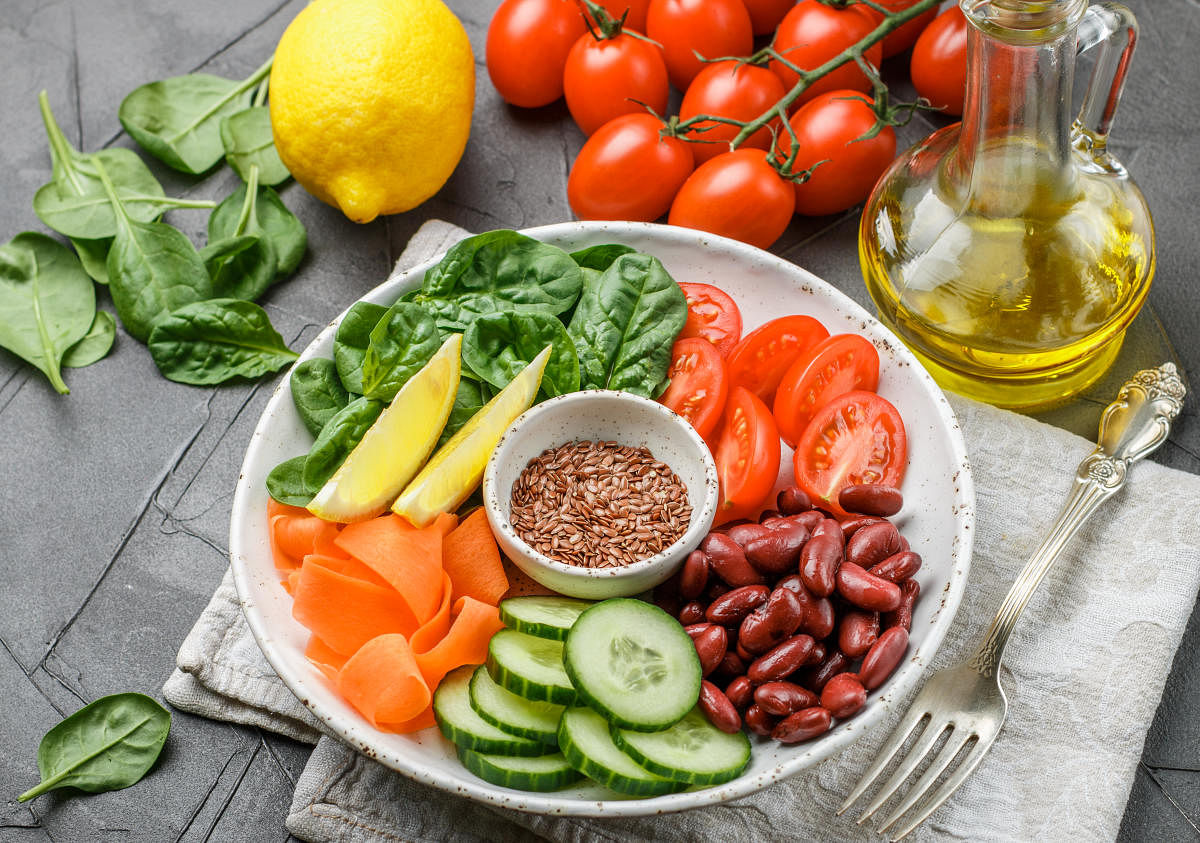
Vegan diets are becoming popular as people are cutting down animal products for environmental, ethical and health reasons. This is basically a personal choice or some may be attracted to veganism because it promotes a more cruelty-free way of living.
Vegan diets consist only of plant-based foods, including all vegetables starting from potato, yam, green leafy vegetables, legumes and pulses including peas, nuts and seeds, fruits, grains, soy and soy products such as tofu.
Research concludes that vegan diets are healthy. Even according to the American Dietetic Association (ADA), a vegan diet can be a complete diet if it fulfils the average person’s needs for protein, micro and macronutrients such as iron, calcium, vitamin D, vitamin B12, omega-3 fatty acid.
Protein: It is important that vegans consume protein-rich foods that contain the full range of essential amino acids. It includes beans, quinoa, oatmeal, nuts or a nutritional supplement which can meet the requirements.
Iron: Vegans are usually prone to iron deficiencies because they eliminate sources of heme iron (from animals), which is more easily absorbed by the body than non-heme iron (from plants) with a food rich in vitamin C.
Studies have shown that vegan diets are associated with a reduced incidence of obesity as they tend to include fewer trans fats, fewer saturated fats, and more dietary fibre. Another study has documented that self-reported hypertension was lowest amongst vegans.
(The author is chief nutritionist, Aster RV Hospital)